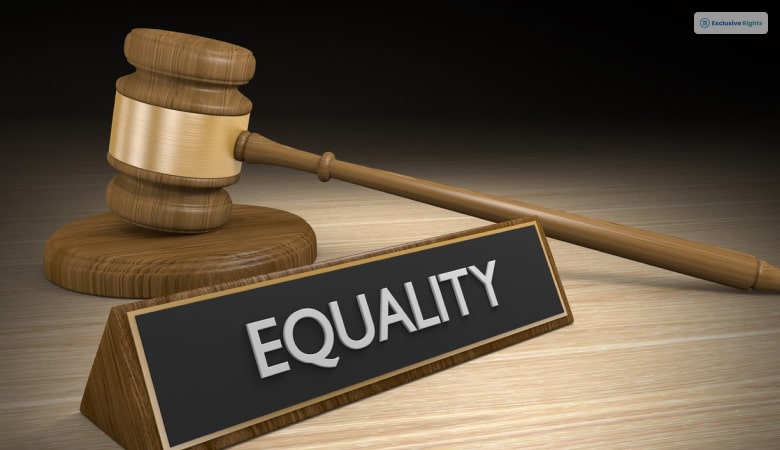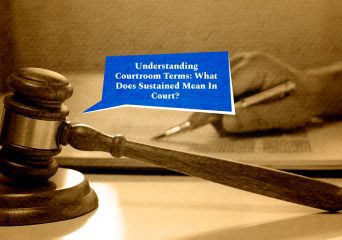
Table Of Contents
- Rule Of Law? Now, What Is that?- Features Of Equality
- So Who Thought About The Right To Equality First?
- Equality In The 21st Century
- Laws Enforcing The Right To Equality
- The Universal Declaration Of Human Rights
- The US Constitution: Equal Protection Clause
- The Equality Act
- Frequently Asked Questions (FAQs):-
- And It’s A Wrap!
What Does The Right To Equality Mean?
Liberté, égalité, fraternité”
Translating to liberty, equality, and fraternity, this slogan remains to date the legacy of the French Revolution. Principles of Christianity are the oldest known sources of the concept of equality. Everyone is equal in the eyes of God.
Today, equality is considered to be intrinsic to human existence.
“These men ask for just the same thing: fairness, and fairness only. This is, so far as in my power, they, and all others shall have.” – Abraham Lincoln
Black’s Law Dictionary defines Equality as “The condition of possessing the same rights, privileges, and immunities and being liable to the same duties.”
Rule Of Law? Now, What Is that?- Features Of Equality

Rule of law was first proposed by Sir Edward Coke. Equality in the political and social system can be identified by the prevalence of the Rule of Law. Rule of law is the system where all persons under the law are equal before the eyes of the law.
The laws in question here are the public laws that have been homogeneously enforced and adjudicated. The Rule of law is a major concept in the governing machinery of the United States.
Dicey in his work, “The Constitution Of England” writes about the primary constituents of the Rule Of Law. They include:
- Supremacy of law and not a particular individual.
- Equality of all before the law.
- Utmost importance to legal spirit.
Dicey held that the Frech Government system of “Droit Administratif” where a separate set of laws existed for government officials and separate for common folks, was not abiding by the principles of equality.
Article 2 of the Universal Declaration of Human Rights deals with the concept of equality. Following the footsteps of the United Nations.
The Equality Act passed by Congress amended the Civil Rights of 1964 to exclude all discriminatory practices on the basis of “sex, sexual orientation and gender identity in employment, education, jury service, etc.”
So Who Thought About The Right To Equality First?

Until the commencement of the 18th Century, all human beings were thought to be unequal by nature. People were randomly discriminated against on the oasis of social stature, gender, sex, and education.
And in come the Stoics!
The uniqueness of stoicism lies in its principle that human beings are capable of reason. This led to the establishment of the concept of equality. Roman Stoic Philosopher Seneca believed that a wise man would choose the company of rational beings rather than the company he was born into.
Human beings’ power to reason made them morally equal to one another. The stoics thus established their respect toward the natural law, mainly equality, on the basis of our inherent logos(reason).
In the holy Bible, verse 3:28 of the Galatians states that one is not Greek or Jew, slave or free, male or female, for we humans are all one in Christ. The scriptures of the holy Quran establish that all human beings are one in the eyes of Allah. The Torah states that peace can only prevail when there is justice and equality.
Equality through the theory of natural law made its way into modern society under philosophers like Hobbes, Locke, and Rosseau. Rousseau’s Social contract theory establishes the moral nature of the State which aims to serve the ends of justice and equality.
Kant’s Ethical Theory talks about the universality of human worth and its right to equality. This concept went on to be adapted into the Constitutions of various nations.
The Universal Declaration of Human Rights, the American Declaration of Independence, the French Declaration of Rights, and The US Constitution, have all drawn inspiration from it.
There have been many implications of the equality clause in regulations from Congress, legislation, as well as landmark judgments.
Brown v. Board of Education of Topeka(1954) was a landmark judgment where the US Supreme Court held that discrimination in schools on the basis of race was unconstitutional.
Equality In The 21st Century

The purpose of a piece of legislation is to
- Establish the standards to be followed by law-abiding citizens.
- Maintaining order in society.
- Resolving disputes among individuals and associations.
- Protecting the individual’s rights and liberties.
There have been many implementations of the concept of equality in modern-day legislation. Here is a list of all such laws.
Laws Enforcing The Right To Equality
There are a number of laws of the United States government that focus on the aspect of the Right to equality. The most important pieces of legislation include:
The Universal Declaration Of Human Rights

Article 2 of The Universal Declaration Of Human Rights mandates that all of the 30 rights enlisted here are to be applicable to all humans living in the member nations of the UN.
These rights are to be enjoyed by the public without being discriminated against on the basis of caste, religion, sex, color, social standing, country of origin, etc.
The US Constitution: Equal Protection Clause

The Equal Protection Clause is part of the Fourteenth Amendment to the US Constitution. It states that no person who is a citizen of the United States or one who has been naturalized to be one should have their rights abridged by any law passed by the state.
Any state is also not authorized to deprive a person of the liberties of life, property, or the due process of law. All citizens of the United States are to enjoy equal protection of the law.
In the case of Gideon v. Wainwright(1963), the Supreme Court held that every citizen had the right to be equally protected by law. Everyone had the right to be represented by an attorney and to a free and fair trial.
In the case of Loving v. Virginia(1967), the Supreme Court held that racial discrimination playing a part in the choice of an adult’s choice to marry was indeed violating the Equal Protection Clause of the 14th Amendment Act.
In the case of Regents of California v. Bakke(1976), the Supreme Court held that admission to medical school on the basis of one’s race only was unconstitutional. It could be considered to be one of the criteria, however not the only one.
The Equality Act

The Equality Act is a bill in Congress that is meant to amend the Civil Rights Act of 1964. This bill has the aim to stop discrimination on the basis of sex, gender identity, sexual orientation, employment, jury duty, etc.
The authors of the bill are acclaimed activists(Crystal Eastman, Alice Paul, and others)
The provisions of the Act state that “Equality of rights under the law shall not be denied or abridged by the United States or by any state on account of sex.”
Now that in the 21st Century that women, non-binary and queer people are more than ever trying to fight for their place in society, it is clear that mere efforts in the form of a bill will not count.
Previously existing restrictions by the law included the prohibition to vote or own property. Long-existing gender stereotypes restricted women to certain pre-defined standards. This, however, was not the case for men, who were given the status of full citizens.
Women of color were the ones who were subject to dogmatic constraints. Gender, ethnic, or racial biases diminished the status of other women as compared to that of white women. The Equality Right Act has not yet been added to the Constitution of the US, but the problems that gave rise to this Act have been done away with to an extent.
Frequently Asked Questions (FAQs):-
Ans: The 14th amendment to the US Constitution states that every citizen of the United States shall enjoy the equal protection of the law. They may not be discriminated against on the basis of race, religion, sex, social stature, nationality, native language, etc.
Ans: The 15th amendment to the US Constitution granted in the year 1869, grants African-Americans the right to vote.
Ans: The US has a proposed Equal Rights Act, which is currently in the form of a bill. The bill advocates for equal rights for men and women all across the territory of the United States.
Ans: Right to equality states that everyone enjoys the same set of rights without facing any discrimination of any sort.
Ans: The first ten amendments, also known as the Bill of rights include:
⦿ Amendment 1 dealing with Freedoms, Petition, and Assembly.
⦿ Amendment 2 dealing with the Right to Bear Arms.
⦿ Amendment 3 dealing with the Quartering of Soldiers.
⦿ Amendment 4 dealing with Search and arrest.
⦿ Amendment 5 dealing with Rights in criminal cases.
⦿ Amendment 6 dealing with the Right to a fair trial.
⦿ Amendment 7 dealing with Rights in Civil cases.
⦿ Amendment 8 dealing with Bail, fines, and punishment.
⦿ Amendment 9 dealing with Rights retained by the people.
⦿ Amendment 10 dealing with State’s Rights.
And It’s A Wrap!
If you are wondering that now that you have reached the end of the article, you know everything under the Sun about the right to equality. But that is not the case, sorry.
Rights are an ever-expansive genre with more being added to their purview every day.
Every day the Supreme Court passes several judgments, 5.80 judgments per judge, per day. Thus, in order to keep up with any legal topic, we have to constantly read up on the new laws and verdicts passed.
Hope this inspires you to keep learning and growing!
Do let us know if you liked the article 🙂
Keep Reading About:









